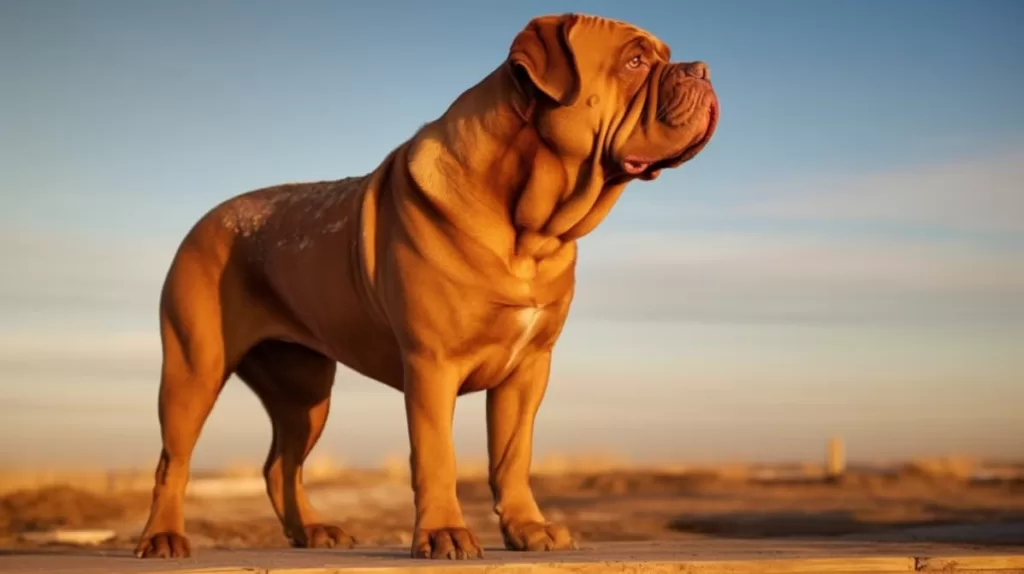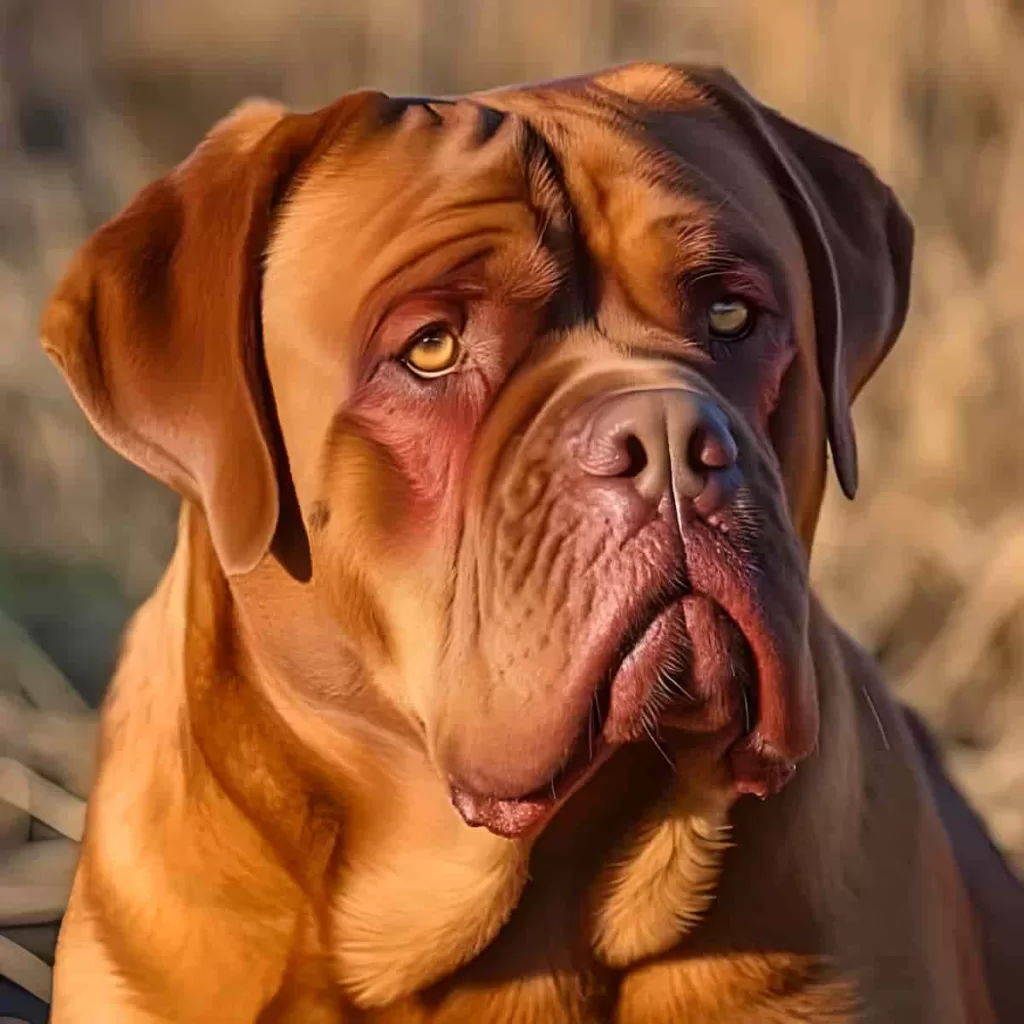Paris, France
THE Dogue de Bordeaux is an imposing and rustic breed of dog, both affectionate and protective. With its large head and massive body, this French breed stands out for its impressive appearance and loyalty to its family.
History and origin of the Dogue de Bordeaux
The Dogue de Bordeaux is an ancient breed that finds its roots in France, more precisely in the Aquitaine region. Its history dates back several centuries, where it was used for hunting, guarding and even as a war dog during invasions in the Middle Ages. Over the years, the breed has developed and been crossed with other breeds such as the English Mastiff or the French Braque to improve certain characteristics.
Physical characteristics of the Dogue de Bordeaux
The Dogue de Bordeaux is recognizable by its broad head, its short and thick muzzle, as well as its powerful and muscular body. Males typically weigh between 60 and 68 kg, while females are slightly smaller, weighing between 45 and 50 kg. Their coat is short and soft, with colors ranging from light fawn to dark red. The wrinkles on their faces give them a serious, but also endearing, look.

Temperament and behavior
Despite its impressive appearance, the Dogue de Bordeaux has a balanced, gentle and protective temperament. He is very affectionate towards his family and is particularly patient with children. As a guardian, he is naturally suspicious of strangers and can be territorial. However, with adequate socialization from a young age, it becomes a pleasant companion for the whole family.
Exercise and socialization needs
The Dogue de Bordeaux is not a very energetic breed, but it does need regular physical activity to maintain its muscle mass and avoid obesity. Daily walks and interactive games are ideal for stimulating your body and mind. Socialization is also important for this breed in order to develop balanced behavior and prevent aggression.
Health problems and genetic predispositions
The Dogue de Bordeaux may be prone to certain health problems specific to its breed. Among these, we find respiratory problems linked to its brachycephalic morphology, heart problems, as well as hip and elbow dysplasia. It is crucial for owners to be alert for signs of these problems and consult a veterinarian if necessary.
Education and training of the Dogue de Bordeaux
The education of the Dogue de Bordeaux must be based on mutual respect and consistency. Due to his protective nature and impressive physical strength, it is important to establish clear rules from the start. The use of positive methods and encouraging reinforcements facilitates learning and results in an obedient dog that is well integrated into the family.
Follow these guidelines to build a strong relationship, based on trust and mutual respect.
Start at a young age
The training of a Dogue de Bordeaux must begin at a very young age. Puppies tend to be more receptive to learning and can pick up basic commands more easily. Develop a consistent, well-structured training routine with special attention to early socialization.
Positive reinforcement
Positive reinforcement is the key to successful training for the Dogue de Bordeaux. Systematically reward good behavior with treats, petting or words of encouragement. This will reinforce the positive association between desired behaviors and rewards, thereby motivating your dog to repeat these behaviors in the future.
Socialization
Socialization is essential for a Dogue de Bordeaux. Expose your puppy to different situations, environments, humans and other animals from a young age. Dog training classes, meeting other dogs and regular outings will help build his confidence and help him become a well-rounded dog.

Learn basic commands
Teach your Dogue de Bordeaux basic commands such as “sit,” “down,” “stay,” and “heel.” Use positive reinforcement techniques to make learning fun and engaging. Be patient and persistent, as some dogs may take longer to learn these commands.
Managing Energy and Exercise
The Dogue de Bordeaux is a powerful breed and needs regular exercise to avoid boredom and unwanted behavior. Plan daily walks and offer interactive games that stimulate his intelligence. Also be sure to provide a calm and comfortable environment for your dog to rest.
Maintenance and grooming of the Dogue de Bordeaux
Maintaining the Dogue de Bordeaux is relatively simple. Its short coat requires regular brushing to remove dead hairs, especially during shedding periods. It is also important to regularly clean the folds on your face to avoid skin infections. Finally, remember to constantly check his ears, eyes and claws to ensure his overall well-being.
The Dogue de Bordeaux is an endearing and protective breed, ideal for families looking for a loyal and gentle companion. With appropriate education, care adapted to its health and particular attention to its maintenance, this rustic and imposing dog can be the ideal companion to share many happy moments with the family.
Who is this breed for?
The Dogue de Bordeaux is a breed that is well suited to a loving and committed family, ready to dedicate time to its exercise, education and grooming. Due to its size and strength, it is generally not recommended for first-time dog owners unless they are willing to invest a lot of time and effort into learning how to manage these aspects .
Dogues de Bordeaux are excellent companions for families with older children who can understand how to interact appropriately with a large dog. They are also well suited to people who lead quieter lives, as they do not have as high exercise requirements as other large breeds.
It is important to note that this breed requires early socialization and training to prevent territorial or aggressive behavior. Potential owners should be prepared to dedicate time to this essential task.


